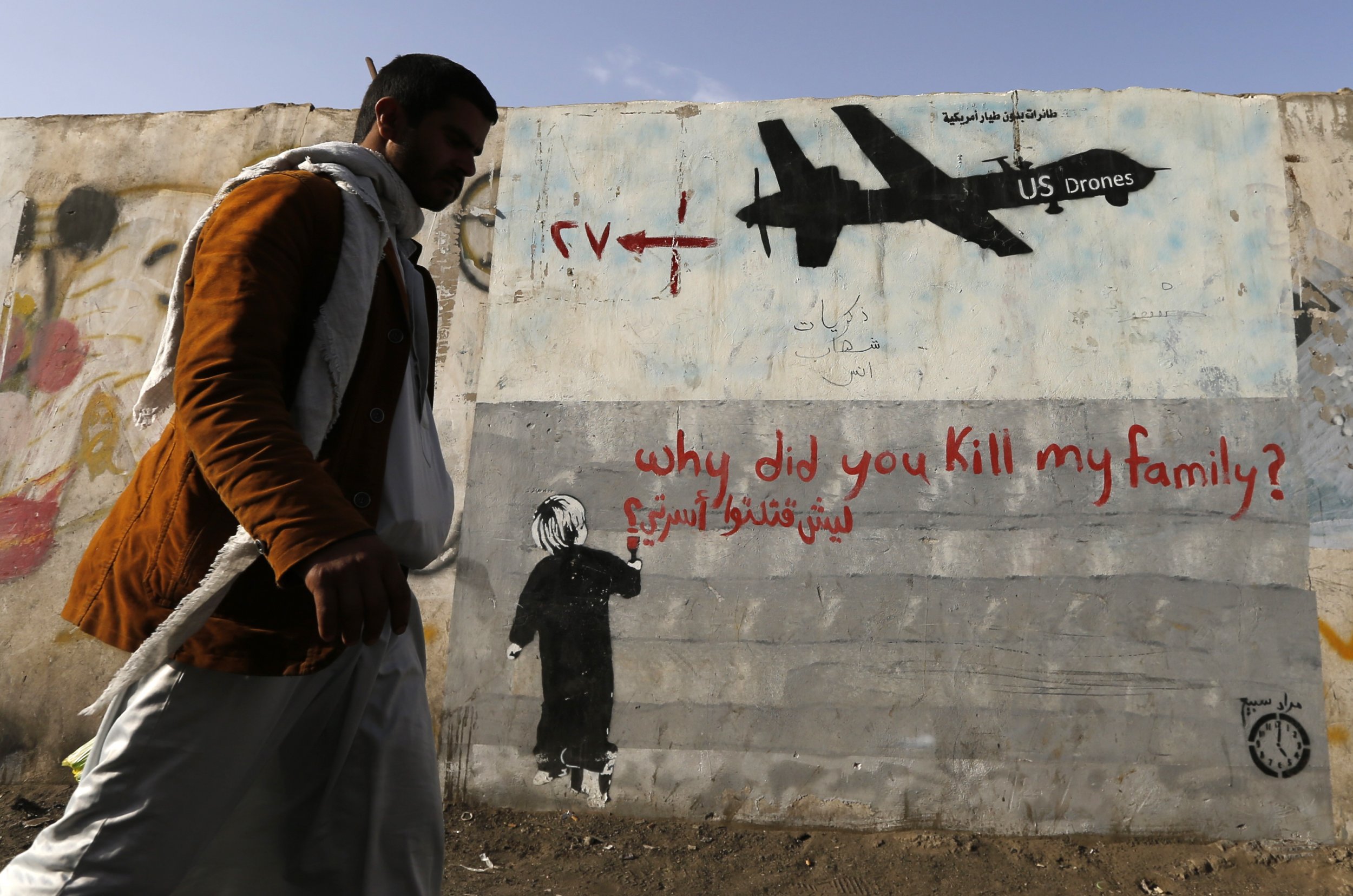
President Donald Trump is set to water down limits imposed by his predecessor Barack Obama on drone strikes and commando raids abroad, allowing special forces and the CIA to take out jihadis outside designated conflict zones.
The new strategy would make possible raids against radical Islamists outside countries where the U.S. is already operating, such as Yemen, Libya, Somalia, Afghanistan, Pakistan, Iraq and Syria, officials familiar with the preparations inside the Trump administration told the New York Times.
The changes will allow the targeting of low-level foot soldiers, whereas previously the Obama administration had restricted capture-and-kill missions to radical Islamist leaders and those who posed a significant and immediate security threat to the United States.
A second change would also pave the way for less vetting before the launch of a drone strike or a commando raid. The changes were proposed by Trump's top national security advisers, the Times reported.
The U.S. military and the CIA is conducting a comprehensive drone campaign against radical Islamist militants in areas of Africa and the Middle East where the world's most dangerous militant groups operate. The military also conducts high-level commando raids to rescue hostages held by jihadi groups and take out the most notorious figures in their ranks.
One of the most famous raids in recent years was the operation in 2011 to eliminate the leader of Al-Qaeda, Osama Bin Laden. More recently, U.S. special forces have been deployed into Iraq and Syria, tasked with taking out the top leaders of the Islamic State militant group (ISIS), particularly searching for its leader, Abu Bakr al-Baghdadi.
The new rules could see the U.S. take on missions outside the traditional areas of operation to battle ISIS. The group has a network of affiliates outside Iraq and Syria—the location of its self-proclaimed caliphate—in countries such as Egypt, Nigeria, the Philippines and the Sahel.
A loosening of the restrictions would be in line with Trump's pledge to "eradicate" radical Islamist militant groups. In his January 20 inauguration address, he said: "We will reinforce old alliances and form new ones, and unite the civilized world against radical Islamic terrorism, which we will eradicate completely from the face of the earth." In his speech at the United Nations General Assembly on Tuesday, he once again referred to extremists as "losers."
The pulling back of the limits would not change the requirement for there to be a "near certainty" that civilians will not be collateral damage in a raid or strike.
As well as giving more freedom to his security forces to hunt down extremist individuals, Trump has also loosened restrictions on airstrikes against ISIS in Iraq and Syria. This has resulted in an increase in bombs dropped on the group's positions, but also a rise in civilian casualties. Rights groups have criticized the U.S.-led coalition battling ISIS and have gone as far to suggest that it has breached international law.
An Amnesty International report published in July said the coalition had subjected Iraqi civilians in west Mosul to tactics that deliberately placed them in danger—such as targeted strikes that caused mass damage in packed civilian areas—and did not take the measures required to ensure their safety.
"Even in attacks that seem to have struck their intended military target, the use of unsuitable weapons or failure to take other necessary precautions resulted in needless loss of civilian lives and in some cases appears to have constituted disproportionate attacks," the report said.
The coalition called the report "irresponsible" and Lieutenant General Stephen Townsend, the top U.S. general in Iraq, said the grouping of international air forces had not violated international law—calling it the "most precise campaign" in the history of warfare.
Uncommon Knowledge
Newsweek is committed to challenging conventional wisdom and finding connections in the search for common ground.
Newsweek is committed to challenging conventional wisdom and finding connections in the search for common ground.
About the writer
Jack is International Security and Terrorism Correspondent for Newsweek.
Email: j.moore@newsweek.com
Encrypted email: jfxm@protonmail.com
Available on Whatsapp, Signal, Wickr, Telegram, Viber.
Twitter: @JFXM
Instagram: Read more
To read how Newsweek uses AI as a newsroom tool, Click here.








